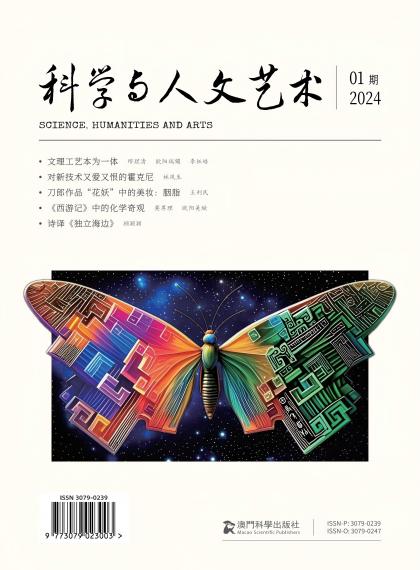
一、期刊编委会
期刊编委会汇聚了来自全球顶尖科研机构、知名高校及艺术殿堂的权威专家与杰出学者。他们横跨科学、技术、人文与艺术等多元领域,凭借深厚的专业造诣与丰富的实践经验,敏锐洞察学科前沿动态。编委会致力于严格把控期刊学术质量,精心筛选、深度审阅每一篇稿件,为期刊注入前沿理念与创新思维。他们积极推动科学技术与人文艺术的跨界融合,助力搭建跨学科交流桥梁,引领《科学与人文艺术》期刊成为全球范围内学科交叉融通的卓越平台。
二、编辑团队
编辑团队是一支由专业素养深厚、经验丰富的编辑人才组成的精锐之师,他们是期刊内容质量的坚实守护者。编辑团队需对每一篇投稿进行严格筛选与深度编辑,从内容逻辑、语言表达、专业知识准确性等多方面把关,精心打磨每一篇文章。同时,紧密配合编委会,参与选题策划,确保杂志内容与时俱进。在编辑过程中,团队成员还积极与作者沟通交流,提供专业建议,助力优质稿件的诞生,打造成高品质期刊。
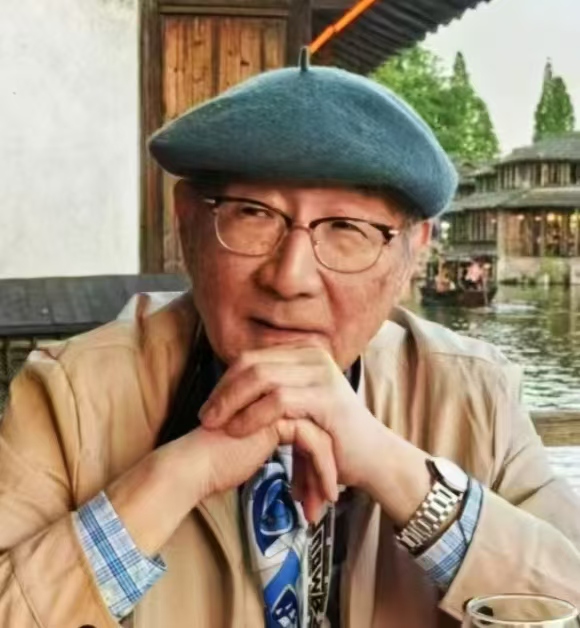 钱定平,又名钱锋。大学本科为北大理科数学力学系毕业,师事著名数学家、北大校长丁石孙教授。研究院教育则为复旦一般语言学毕业,导师为语言文字学家、文史学家吴文褀教授。通英、法、德、俄、日诸种语言。其后在半导体数字电子工厂从工人做到工程师,以及自动化研究所计算机硬件与软件工程师。后与一德国留学的老工程师从事汉字进入计算机的编码研究成功,并研制了世界第一台汉字输入设备。1984年在上海华东师范大学任教,研制了计算机英语教学与研究辅助系统 ETRA,并于1985年夏在美国计算机大会报告,引起轰动。这实际上是世界上第一套桌面软件,早于微软在当年11月发布的Windows。其后,应邀到美国进行机器翻译研究,并被聘请到德国科布伦茨大学和奥地利的萨尔茨堡大学担任长期客座教授。期间,在理学院教授计算语言学,在文学院教授中国文学,并积极倡导“理科当作文科教”(Teaching Sciences as Liberal Arts)的大学教育改革试验,收到极好效果。回国后,开始写作文学艺术与科学技术互相兼容的文学作品,出版了散文集、小说和学术专著二十余种。同时,潜心进行打通各个分离科学之通感思维的科学研究。并以发表文章、举办报告会和在各大中小学举行演讲的方式进行宣传,初见效果。2024年出版了世上首次提出创新的基本理论和系统方法的英文专著 Synesthesia Decodes Innovation。而中文三卷本著作《通感创新思维导论》即将由澳门科技出版社推出。
钱定平,又名钱锋。大学本科为北大理科数学力学系毕业,师事著名数学家、北大校长丁石孙教授。研究院教育则为复旦一般语言学毕业,导师为语言文字学家、文史学家吴文褀教授。通英、法、德、俄、日诸种语言。其后在半导体数字电子工厂从工人做到工程师,以及自动化研究所计算机硬件与软件工程师。后与一德国留学的老工程师从事汉字进入计算机的编码研究成功,并研制了世界第一台汉字输入设备。1984年在上海华东师范大学任教,研制了计算机英语教学与研究辅助系统 ETRA,并于1985年夏在美国计算机大会报告,引起轰动。这实际上是世界上第一套桌面软件,早于微软在当年11月发布的Windows。其后,应邀到美国进行机器翻译研究,并被聘请到德国科布伦茨大学和奥地利的萨尔茨堡大学担任长期客座教授。期间,在理学院教授计算语言学,在文学院教授中国文学,并积极倡导“理科当作文科教”(Teaching Sciences as Liberal Arts)的大学教育改革试验,收到极好效果。回国后,开始写作文学艺术与科学技术互相兼容的文学作品,出版了散文集、小说和学术专著二十余种。同时,潜心进行打通各个分离科学之通感思维的科学研究。并以发表文章、举办报告会和在各大中小学举行演讲的方式进行宣传,初见效果。2024年出版了世上首次提出创新的基本理论和系统方法的英文专著 Synesthesia Decodes Innovation。而中文三卷本著作《通感创新思维导论》即将由澳门科技出版社推出。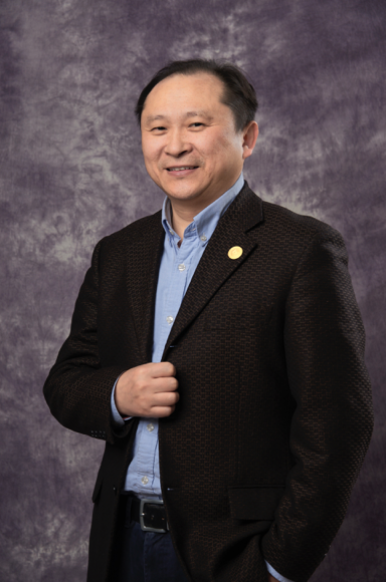 缪煜清,上海理工大学教授、中国科技新闻学会理事、上海市科普作家协会理事、中国有色金属工业协会稀散金属分会理事、英国皇家化学会会士。 以“国家需求、人民健康”为理念,创建铋科学研究中心,带领团队围绕国家战略金属、健康医学材料,开展铋及相关小金属方面特色研究。面向全校开设通识-综合素养课程《人类文明与化学》,深受学生喜爱,被誉为“我们的宝藏老师”,被学习强国、解放日报、文汇报多家媒体宣传报导。秉承大学服务社区、服务社会的责任感,为中国科协、中国科学技术馆、上海市图书馆、杨浦区融媒体中心等开展讲座,在小学、中学、大学以及社会群体开展多层次贯通式科普教育实践活动。与上海市科普事业中心、上海市科普作家协会联合主办上海市化学奇思妙想大赛,与上海市科技馆、上海科创教育指导委员会联合主办铋彩华章科学艺术大赛,被新华社、光明日报等媒体报导。研究化学史、科技史等内容,出版《化学的文化密码》《沪江大学化学史》等作品。
缪煜清,上海理工大学教授、中国科技新闻学会理事、上海市科普作家协会理事、中国有色金属工业协会稀散金属分会理事、英国皇家化学会会士。 以“国家需求、人民健康”为理念,创建铋科学研究中心,带领团队围绕国家战略金属、健康医学材料,开展铋及相关小金属方面特色研究。面向全校开设通识-综合素养课程《人类文明与化学》,深受学生喜爱,被誉为“我们的宝藏老师”,被学习强国、解放日报、文汇报多家媒体宣传报导。秉承大学服务社区、服务社会的责任感,为中国科协、中国科学技术馆、上海市图书馆、杨浦区融媒体中心等开展讲座,在小学、中学、大学以及社会群体开展多层次贯通式科普教育实践活动。与上海市科普事业中心、上海市科普作家协会联合主办上海市化学奇思妙想大赛,与上海市科技馆、上海科创教育指导委员会联合主办铋彩华章科学艺术大赛,被新华社、光明日报等媒体报导。研究化学史、科技史等内容,出版《化学的文化密码》《沪江大学化学史》等作品。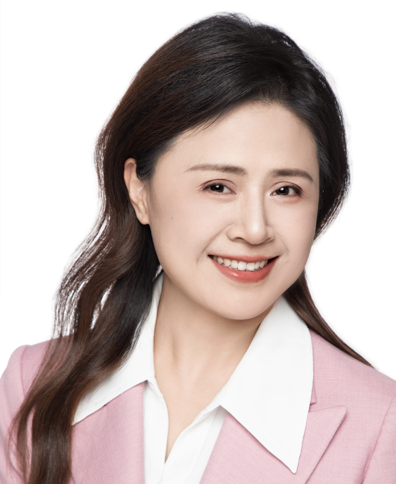 欧阳瑞镯,上海理工大学材料与化学学院化学系主任、沪江教授。
欧阳瑞镯,上海理工大学材料与化学学院化学系主任、沪江教授。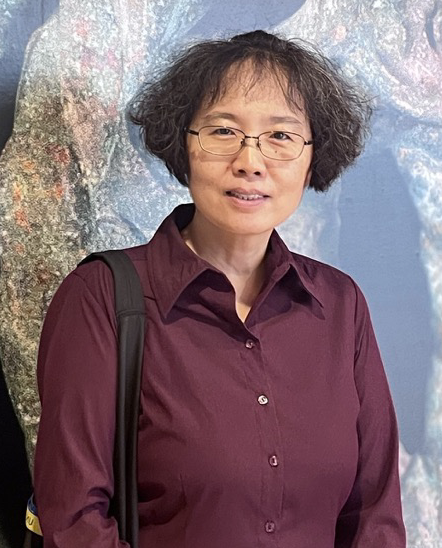 朱天舒,澳门大学人文艺术学院历史系副教授,美国俄亥俄州立大学艺术史系佛教艺术史专业博士。
朱天舒,澳门大学人文艺术学院历史系副教授,美国俄亥俄州立大学艺术史系佛教艺术史专业博士。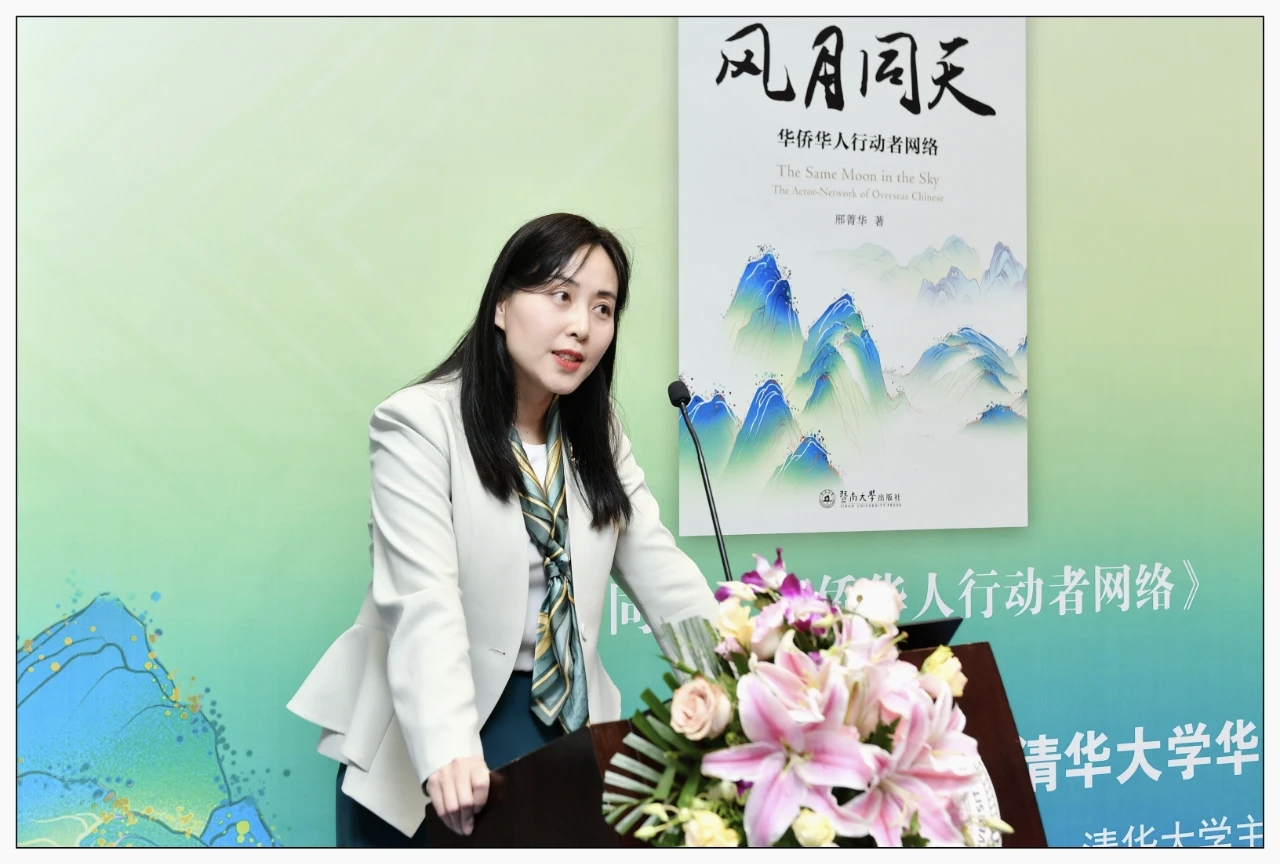 邢菁华,北京大学城市软实力研究院研究员,侨海(中国)创新发展研究院执行院长,华商科技创新发展(济南)中心主任,济南市哲学社科领域学科带头人,致公党中央海外联络委员会(港澳台联络委员会)委员,致公党北京市委理论研究会副会长,山东大学移民研究所特聘研究员,美国加州大学洛杉矶分校(UCLA)国家公派访问学者。中国商业史学会副秘书长暨常务理事,中国华侨历史学会理事。北京市侨联智库专家,北京市人民政协理论与实践研究会委员。曾任清华大学华商研究中心副主任,曾在北京大学哲学系·宗教学系和北京大学医学部从事科学技术哲学博士后研究。主要研究海外华侨华人经济社会等领域,出版专著《风月同天:华侨华人行动者网络》《Silk and Road》等,任《企业史研究》副主编、《华人研究国际学报》编委等。近年来先后获得致公党中央专门委员会委员履职先进个人、中国致公党参政议政优秀成果、省级侨联优秀调研课题成果一等奖、二等奖(多次)、中国商业联合会科学技术奖--全国商业科技创新人物、全国商业科技进步奖、全国服务业科技创新奖等多个荣誉奖项。多项智库成果被正国级领导人批示。
邢菁华,北京大学城市软实力研究院研究员,侨海(中国)创新发展研究院执行院长,华商科技创新发展(济南)中心主任,济南市哲学社科领域学科带头人,致公党中央海外联络委员会(港澳台联络委员会)委员,致公党北京市委理论研究会副会长,山东大学移民研究所特聘研究员,美国加州大学洛杉矶分校(UCLA)国家公派访问学者。中国商业史学会副秘书长暨常务理事,中国华侨历史学会理事。北京市侨联智库专家,北京市人民政协理论与实践研究会委员。曾任清华大学华商研究中心副主任,曾在北京大学哲学系·宗教学系和北京大学医学部从事科学技术哲学博士后研究。主要研究海外华侨华人经济社会等领域,出版专著《风月同天:华侨华人行动者网络》《Silk and Road》等,任《企业史研究》副主编、《华人研究国际学报》编委等。近年来先后获得致公党中央专门委员会委员履职先进个人、中国致公党参政议政优秀成果、省级侨联优秀调研课题成果一等奖、二等奖(多次)、中国商业联合会科学技术奖--全国商业科技创新人物、全国商业科技进步奖、全国服务业科技创新奖等多个荣誉奖项。多项智库成果被正国级领导人批示。